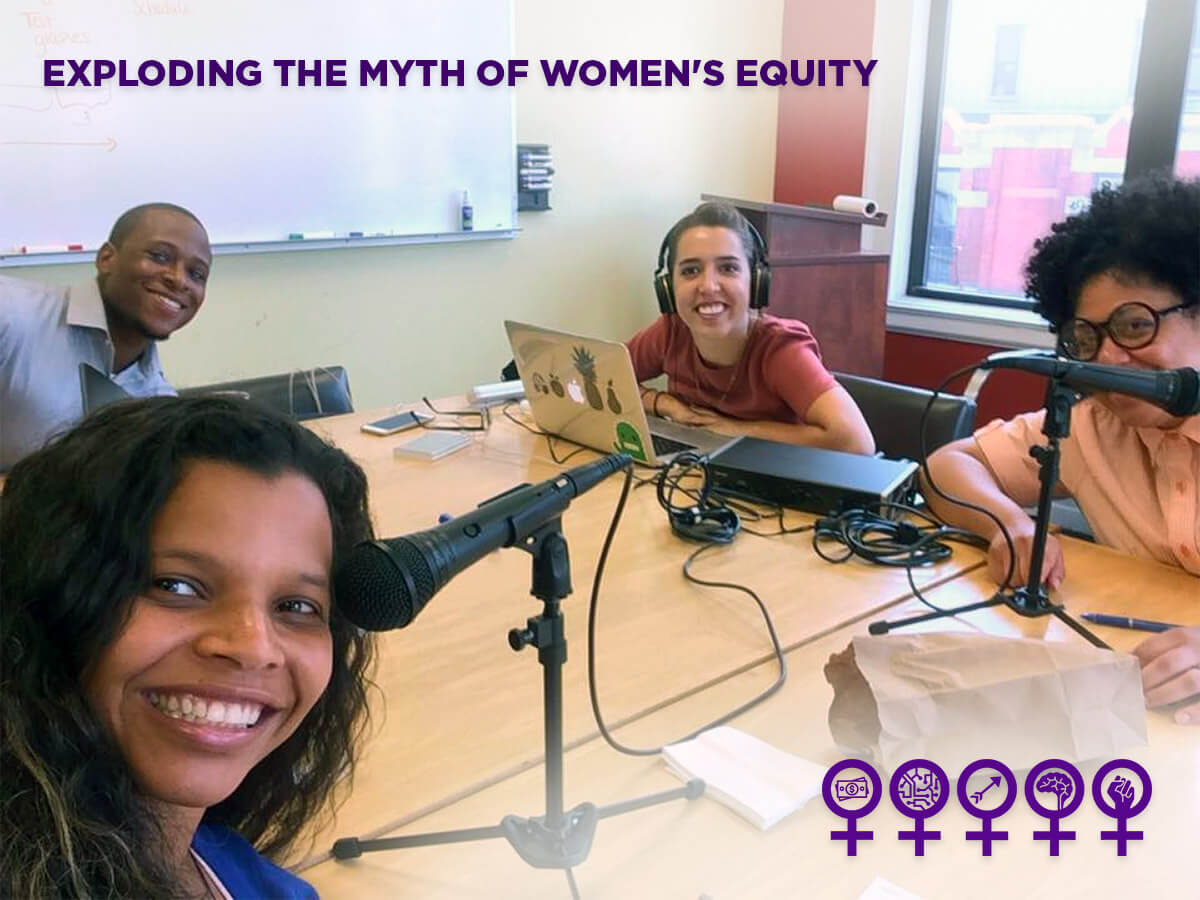On August 18, 2016, leaders of the McSilver Institute’s Anti-Oppressive Steering Committee released a podcast titled “Understanding HERstory: An Anti-Oppressive Framework for Helping Professionals Working with Women.” This podcast was the fifth and final part in the Exploding the Myth of Women’s Equity webinar series, which sought to provide a holistic understanding of the impact of gender disparities for women. The series’ mission was to dispel myths that women live in a society that treats them equally to men.
The initial 10 minute podcast featured a conversation between the McSilver Institute’s Step-Up Research Scientist and Anti-Oppressive Steering Committee (AOSC) co-chair Zoila Del-Villar, CASAC, MHC-Limited Permit, and the McSilver Institute’s Communications and Program Manager and AOSC co-administrator Amanda Alcantara. Del-Villar led the conversation with her expertise on anti-oppressive practice for helping professionals as Alcantara asked questions regarding specific aspects of having an anti-oppressive framework.
Del-Villar shared that anti-oppressive practice is based on the concept of power, privilege and oppression, ultimately addressing inequalities in people’s lives. She stated, “This approach is important for helping professionals because it can be incorporated through advocacy and mobilization with the overall end goal being to eliminate oppression through institutional and societal change.” Del-Villar reaffirmed, “It’s just really dope.”
Throughout the conversation, Del-Villar and Alcantara discussed mainly the strengths in anti-oppressive practice, but also the weaknesses as well as the challenges that exist in implementing this approach. Del-Villar mentioned two examples specifically of a concept known as white fragility, particularly one where high school students of color felt that they couldn’t safely share their experiences in front of white graduate students who were completing their internship. Del Villar explained that the students of color felt the need to protect the white interns from their struggles. An anti-oppressive lens, she assured, could have prevented this.
“If the interns had had an anti-oppressive lens, I believe they would’ve challenged this…they would’ve, for example, asked ‘how do you feel about me being white?’ Or, ‘why can’t we talk more about your life?’ instead of ‘tell me about your experience being a girl of color in a bad neighborhood?’”
Del-Villar said that a challenge is often that anti-oppressive practice is simply not taught widely enough. She stated,“We must keep in mind that graduate students are normally taught under a white supremacist system that is often archaic and doesn’t adapt to people of color.”
The podcast ended with a recap of everything that was discussed as well as a reminder to listeners to also watch the four other webinars in this series.
The four webinars preceding this podcast included conversations with professionals, academics and activists. The first webinar was with workshop coordinator and public speaker Audrey Augustave who addressed the difficulties of being a woman in the workplace and navigating being “liked as well as respected.” The following webinar was on “Women, Tech and The Future” featuring a representative from the national organization Chick Tech. The third webinar was with Dr. Mayowa Obasaju, who serves on the Board of Black Women’s Blueprint. Dr. Obasaju spoke about the intersection of women and mental health. The fourth webinar, directly preceding the podcast, addressed the question of “How Far Have We Come?” with Dr. Brittney Cooper of Rutgers University. Dr. Cooper gave an overview of the current state of women of color in the United States highlighting the current elections, media representation, and the Black Lives Matter movement.
The leaders of the Anti-Oppressive Steering Committee behind this series were co-chairs Zoila Del Villar, CASAC, MHC-Limited Permit and Jayson Jones, LMSW, and co-administrators Briana Goncalves and Amanda Alcantara.
All five episodes in this series are archived here.
